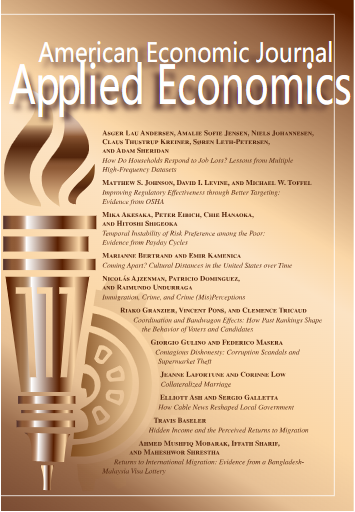当爸爸可以呆在家里:父亲的工作灵活性和母亲的健康。
IF 6.2
1区 经济学
Q1 ECONOMICS
引用次数: 0
摘要
我们研究父亲如何获得工作场所的灵活性影响产妇产后健康。我们采用了瑞典的一项改革,该改革允许新父亲在产后期间更灵活地休间歇性的育儿假,并表明增加父亲的时间灵活性——从而他与母亲一起在家的能力——减少了母亲产后健康并发症的发生率。我们的研究结果表明,母亲承担了男性缺乏工作灵活性的部分负担,因为父亲无法应对家庭冲击,加剧了母亲生育的健康成本。本文章由计算机程序翻译,如有差异,请以英文原文为准。
When Dad Can Stay Home: Fathers' Workplace Flexibility and Maternal Health.
We study how fathers' access to workplace flexibility affects maternal postpartum health. We use variation from a Swedish reform that granted new fathers more flexibility to take intermittent parental leave during the postpartum period and show that increasing the father's temporal flexibility-and thereby his ability to be present at home together with the mother-reduces the incidence of maternal postpartum health complications. Our results suggest that mothers bear part of the burden from a lack of workplace flexibility for men because a father's inability to respond to domestic shocks exacerbates the maternal health cost of childbearing.
求助全文
通过发布文献求助,成功后即可免费获取论文全文。
去求助
来源期刊

American Economic Journal-Applied Economics
ECONOMICS-
CiteScore
9.10
自引率
1.60%
发文量
63
期刊介绍:
American Economic Journal: Applied Economics publishes papers covering a range of topics in applied economics, with a focus on empirical microeconomic issues. In particular, we welcome papers on labor economics, development microeconomics, health, education, demography, empirical corporate finance, empirical studies of trade, and empirical behavioral economics.
 求助内容:
求助内容: 应助结果提醒方式:
应助结果提醒方式:


